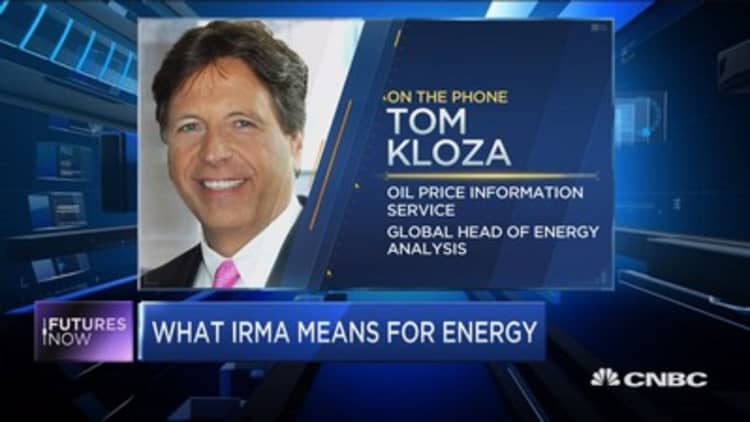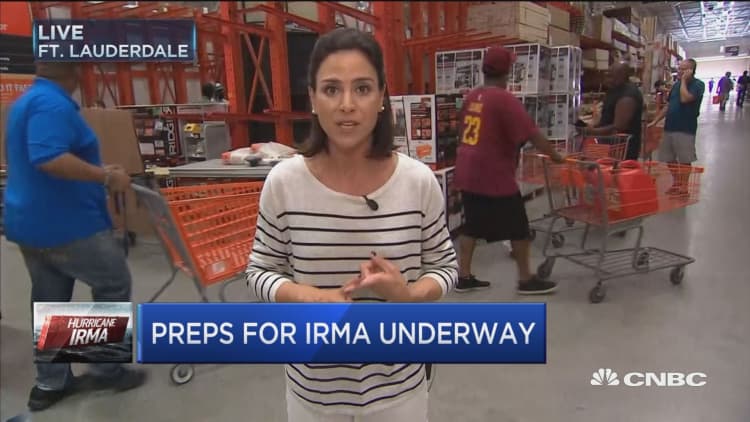
Hurricane preparation is nothing new to Floridians, but the uncertain path of Hurricane Irma has put more stress on the state's gasoline stations than during previous storms.
While panic buying precedes just about every storm that makes landfall in Florida, the uncertain path of Hurricane Irma, a rare Category 5 storm, and its severity are the key variables this time around.
Typically, forecasters can pinpoint the region where the storm will hit, allowing fuel distributors to focus their attention on that one area, explained James Miller, director of communications for the Florida Petroleum Marketers and Convenience Store Association.
But with Irma potentially bound for many different parts of the state, drivers lined up at stations across Florida. That created a statewide run on gasoline and other supplies, making it hard to keep stations supplied, even though Florida has enough gasoline sitting in storage, Miller said.

"You basically had people in all 67 counties rushing out to get gas, food and water," he told CNBC.
"The shortages that we're seeing are very sporadic and temporary. It's not an issue of supply. It's an issue of resupply," Miller added.
Florida Gov. Rick Scott on Wednesday urged evacuees to take only as much gasoline as they need. Several counties in southern Florida had declared or were considering mandatory evacuations by Wednesday.
"One of our top priorities right now is fuel availability," Scott said during a news conference.
"We are doing all we can to streamline fuel delivery" but there will be lines, he said.
Miller stressed that the Sunshine State has seven days worth of fuel even if all ports and roads are closed. Just a few days ago, some Florida distributors were redirecting supplies to Texas to help areas hard hit by Hurricane Harvey, he said.
Stations ran dry in Dallas last week as panic buying exacerbated problems shipping fuel from refineries to retail pumps due to flooding on the Gulf Coast. In Florida, the shortages appear to be purely the result of a pre-emptive buying.

"The demand surges in advance of the storm as everyone fills up, and then they hunker down in their homes as the hurricane approaches and passes," said Andy Lipow, president of Lipow Oil Associates.
Most of Florida's fuel arrives by ship from refineries along the Gulf Coast, so analysts will be monitoring the state of the ports after Irma passes, Lipow said. Damage to those facilities will tell whether shortages caused by panic buying will turn into more prolonged supply disruptions.
So long as the terminals get through the storm undamaged, the demand spike should reverse as motorists stay off the roads and businesses close down.
It's an expensive time for Floridians to be filling up. Average gas prices across the state were at $2.71 a gallon on Wednesday, up from $2.35 a week ago, according to AAA.
At the wholesale level, U.S. gasoline futures were down nearly 2 percent at $1.6691 a gallon, continuing to slide as Gulf Coast refiners got their facilities up and running. Harvey disrupted about 20 to 25 percent of U.S. refining capacity through last week, causing a brief spike in wholesale prices.
— CNBC's Kevin Breuninger contributed to this story.


